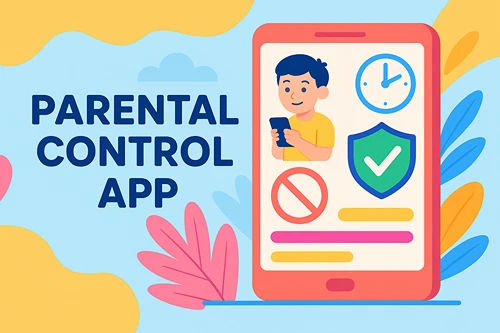The Comprehensive Benefits of Using GPS Trackers for Child Safety and Security
With so many distractions and potential for danger in our daily lives, parents and guardian are consistently seeking new ways to ensure their kids are protected. Keeping up to date on who our kids are with, where they are, and where they are going is a challenge. Thankfully, modern technology offers a helping hand.
Among the innovative solutions that have emerged to help protect our loved ones, the use of GPS trackers designed specifically for child safety are becoming increasingly popular. These devices not only provide real-time location information but also empower parents with tools to respond quickly in various situations.
Let’s delve into the numerous benefits of using GPS trackers for child safety and security, making it clear why they have become essential in modern parenting.
What are GPS Trackers?
GPS trackers are devices that use Global Positioning System (GPS) technology to determine the exact location of a person or object in real time. When used for children, these devices can be worn as wristbands, attached to clothing or backpacks, or carried in pockets. Paired with a smartphone app, GPS trackers allow parents to monitor their children’s whereabouts, ensuring their safety while promoting independence.
Benefits of Using GPS Trackers for Child Safety
1. Real-Time Location Monitoring
One of the most significant advantages of using GPS trackers is the ability to monitor a child’s location in real time. Parents can check their child’s whereabouts at any moment through a dedicated app on their smartphones. This feature is particularly beneficial during school hours, playdates, or outings, allowing parents to ensure their child is safe without constant phone calls or text messages.
2. Enhanced Security with Geofencing
Many GPS trackers offer geofencing features that allow parents to set virtual boundaries. If a child crosses these designated areas, parents receive immediate notifications, enabling them to respond quickly. This feature can be invaluable for keeping children safe in busy public places or ensuring they stay within safe zones, such as school grounds or home.
3. Emergency SOS Functionality
In the event of an emergency, many GPS trackers come equipped with SOS buttons that children can press to alert their parents or guardians. This quick-dial feature can be crucial when a child feels threatened or in danger, providing peace of mind to parents knowing that their child can seek help at the push of a button.
4. Historical Data and Location Tracking
GPS trackers usually maintain a history of location data, allowing parents to review their child’s movements over time. This capability can help parents understand their child’s habits, keeping track of where they go and with whom. It can also be useful in cases of unexplained absences, helping parents quickly pinpoint a child’s last known location.
5. Encouraging Independence with Safety
While the safety features of GPS trackers offer peace of mind, these devices also allow children to explore their independence responsibly. Kids can venture outside, attend school, or participate in extracurricular activities, all while knowing their parents can track them. This dual benefit fosters confidence in children as they learn to navigate the world while ensuring parents remain informed about their safety.
6. Two-Way Communication
Some advanced GPS trackers include two-way communication features, enabling children and parents to communicate directly through the device. This capability not only improves safety by allowing quick check-ins but also strengthens the parent-child relationship by keeping lines of communication open. Children can call their parents without needing a separate phone, adding an extra layer of security.
7. Tracking for Special Needs Kids
Children with special needs may benefit significantly from GPS trackers, as they can sometimes wander away or get lost. These devices provide parents with tools to keep their children safe and secure, allowing them to enjoy the same independence as other kids while ensuring their safety is always monitored.
8. Increased Awareness in Public Spaces
In crowded public spaces like amusement parks, festivals, or shopping malls, GPS trackers can be invaluable. Parents can instantly locate their children if they happen to stray away or get lost in the crowd. Knowing that help is only a few taps away allows parents to foster social experiences for their kids without constantly worrying about their whereabouts.
Choosing the Right GPS Tracker
While the benefits of GPS trackers for child safety are numerous, it’s essential to select the right device to meet your family’s needs. Here are some features to consider when choosing a GPS tracker:
1. Battery Life
Look for a GPS tracker with a long-lasting battery to avoid the need for frequent recharging. An extended battery life is particularly important for active children who may forget to charge their devices regularly.
2. Durability and Comfort
Kids can be rough on their belongings. Choose a GPS tracker that is durable and water-resistant. Additionally, the tracker should be comfortable for children to wear or carry, ensuring they don’t remove it during play or activities.
3. User-Friendly App
The accompanying mobile app should be intuitive and easy to use, allowing parents to access tracking features quickly. Check reviews to ensure the app is reliable and has a user-friendly interface.
4. Size and Weight
Consider the size and weight of the tracker. Lightweight, compact devices are less likely to be an inconvenience for children, promoting consistent usage.
5. Cost and Subscription Fees
Many GPS trackers require subscription fees for their services. Evaluate the overall cost, including the device price and ongoing fees, to ensure it fits within your budget.
Practical Tips for Using GPS Trackers
To maximize the benefits of a GPS tracker, consider implementing the following strategies:
1. Educate Your Child
Explain to your child how the GPS tracker works and why it’s essential for their safety. Emphasizing independence can help them feel empowered rather than micromanaged.
2. Set Up Boundaries Together
Involve your child in setting up geofences. Discuss what areas are considered safe zones and encourage them to understand why these boundaries are important.
3. Check In Regularly
Make it a routine to check your child’s location periodically. Not only does this keep you informed, but it also creates a natural opportunity for discussing their activities and fostering communication.
4. Role-Playing Emergency Scenarios
Practice what your child should do in emergencies, including how to use the SOS function on the GPS tracker. Role-playing can instill confidence and create a familiarity with the process.
5. Respect Privacy
While keeping an eye on your child is crucial, it is also essential to respect their privacy. Encourage open conversations about trust, ensuring your child understands that the device is a safety tool, not a means of control.




